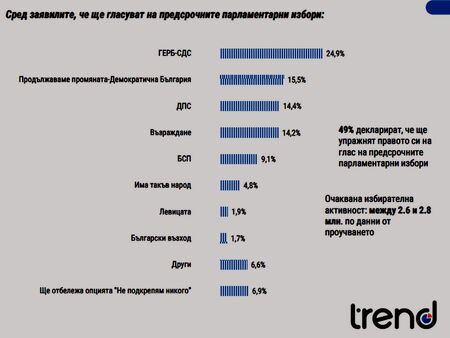Rising Fuel Costs: The Impact Of Oil Supply Shocks On Airlines

Table of Contents
The Direct Financial Impact of Rising Fuel Costs on Airlines
Increased fuel prices directly translate into higher operating costs for airlines. Jet fuel typically accounts for a significant portion (often between 20-40%, depending on the airline and route) of an airline's total operating expenses. This makes airlines exceptionally sensitive to even moderate price increases.
- Increased operating expenses directly impacting profit margins: Higher fuel costs eat into an airline's bottom line, reducing overall profitability and potentially leading to losses.
- Reduced profitability leading to potential financial instability for airlines: Sustained periods of high fuel prices can severely strain an airline's financial health, potentially leading to bankruptcy if not effectively managed.
- Necessity for airlines to implement cost-cutting measures: Airlines may be forced to cut costs elsewhere, potentially affecting services, employee benefits, or investment in future projects.
- Potential for reduced investment in fleet modernization and expansion: High fuel costs can limit an airline's ability to invest in new, more fuel-efficient aircraft, hindering long-term growth and sustainability.
Many airlines employ hedging strategies, such as purchasing fuel futures contracts, to mitigate the risk of volatile fuel prices. However, these strategies are not foolproof and can be complex to manage effectively. The effectiveness of hedging depends heavily on accurate market forecasting and can lead to significant losses if predictions are incorrect. The recent volatility in oil markets highlights the challenges airlines face in managing fuel costs effectively.
The Impact on Airfares and Consumer Behavior
The correlation between rising fuel costs and increased airfares is undeniable. Airlines inevitably pass on a significant portion of their increased fuel expenses to consumers through higher ticket prices.
- Airlines passing on increased fuel costs to consumers through higher ticket prices: This directly impacts the affordability of air travel for many people.
- Potential decrease in air travel demand due to higher fares: Higher prices can lead to a decrease in demand, especially for discretionary travel.
- Shift in consumer behavior towards budget airlines or alternative travel modes: Passengers become more price-sensitive and may opt for cheaper alternatives, such as budget airlines, trains, or buses.
- Increased price sensitivity among passengers: Consumers are more likely to delay travel plans or choose shorter trips to minimize costs.
The elasticity of demand for air travel varies depending on the type of travel (business versus leisure), the availability of substitutes, and the overall economic climate. However, it's generally accepted that higher airfares lead to a decrease in demand, though the extent of this decrease can vary considerably.
Operational Adjustments and Route Optimization in Response to Rising Fuel Costs
To mitigate the impact of rising fuel costs, airlines implement a range of operational adjustments focused on fuel efficiency.
- Implementing fuel-efficient flight routes and operational procedures: Optimizing flight paths to reduce distance and minimize fuel consumption is crucial. This includes utilizing advanced air traffic management systems and weather forecasting to avoid delays and fuel-intensive maneuvers.
- Investing in more fuel-efficient aircraft: Newer aircraft models are typically more fuel-efficient than older ones. Airlines invest in these to reduce their long-term fuel bills.
- Reducing flight frequencies on less profitable routes: Airlines may cut back on flights to destinations with lower demand to avoid operating unprofitable routes.
- Optimizing aircraft weight by reducing unnecessary cargo: Minimizing weight on board helps improve fuel efficiency.
- Implementing more efficient ground operations: Reducing taxiing time and optimizing ground handling procedures can contribute to lower fuel consumption.
Technology plays a significant role in optimizing fuel efficiency. Advanced flight planning software, real-time fuel monitoring systems, and data analytics help airlines make informed decisions about routing, aircraft maintenance, and operational procedures.
The Broader Economic Implications of Rising Fuel Costs for the Aviation Industry
The impact of rising fuel costs extends far beyond the airlines themselves.
- Job losses and potential workforce reductions within airlines: Financial pressures may lead to layoffs and hiring freezes.
- Ripple effects throughout the aviation ecosystem (e.g., airports, tourism): Reduced air travel impacts airports, ground handling services, and the broader tourism sector.
- Impact on international trade and global connectivity: Higher airfreight costs affect the price and availability of goods, impacting international trade.
- Potential for government intervention or subsidies: Governments may intervene with financial aid or regulatory changes to support the aviation industry during periods of crisis.
The aviation industry is deeply interconnected with other sectors of the economy. Its health significantly impacts employment, tourism, and global trade. Therefore, rising fuel costs have broad and far-reaching consequences.
Conclusion
Rising fuel costs significantly impact airlines' financial stability, forcing them to increase fares, adjust operations, and potentially reduce services. These effects ripple through the wider economy, affecting consumers, employees, and related industries. Understanding the impact of these rising fuel costs is crucial for both the industry and consumers. Stay informed about the latest developments concerning rising fuel costs and their impact on the airline industry to make informed travel decisions and anticipate potential future changes. Understanding the intricacies of rising fuel costs is key to navigating the ever-changing landscape of air travel.

Featured Posts
-
 Stock Market Valuation Concerns Bof As Reassuring Analysis
May 03, 2025
Stock Market Valuation Concerns Bof As Reassuring Analysis
May 03, 2025 -
 O Makronakh Chto Skazala Zakharova
May 03, 2025
O Makronakh Chto Skazala Zakharova
May 03, 2025 -
 Belgium Vs England Tv Channel Kick Off Time And How To Watch The Lionesses
May 03, 2025
Belgium Vs England Tv Channel Kick Off Time And How To Watch The Lionesses
May 03, 2025 -
 Lakazet Izprevarva Papen Lion Napt Za Vtoroto Myasto
May 03, 2025
Lakazet Izprevarva Papen Lion Napt Za Vtoroto Myasto
May 03, 2025 -
 Dont Miss Out Free Cowboy Bebop Gear In Fortnite
May 03, 2025
Dont Miss Out Free Cowboy Bebop Gear In Fortnite
May 03, 2025
